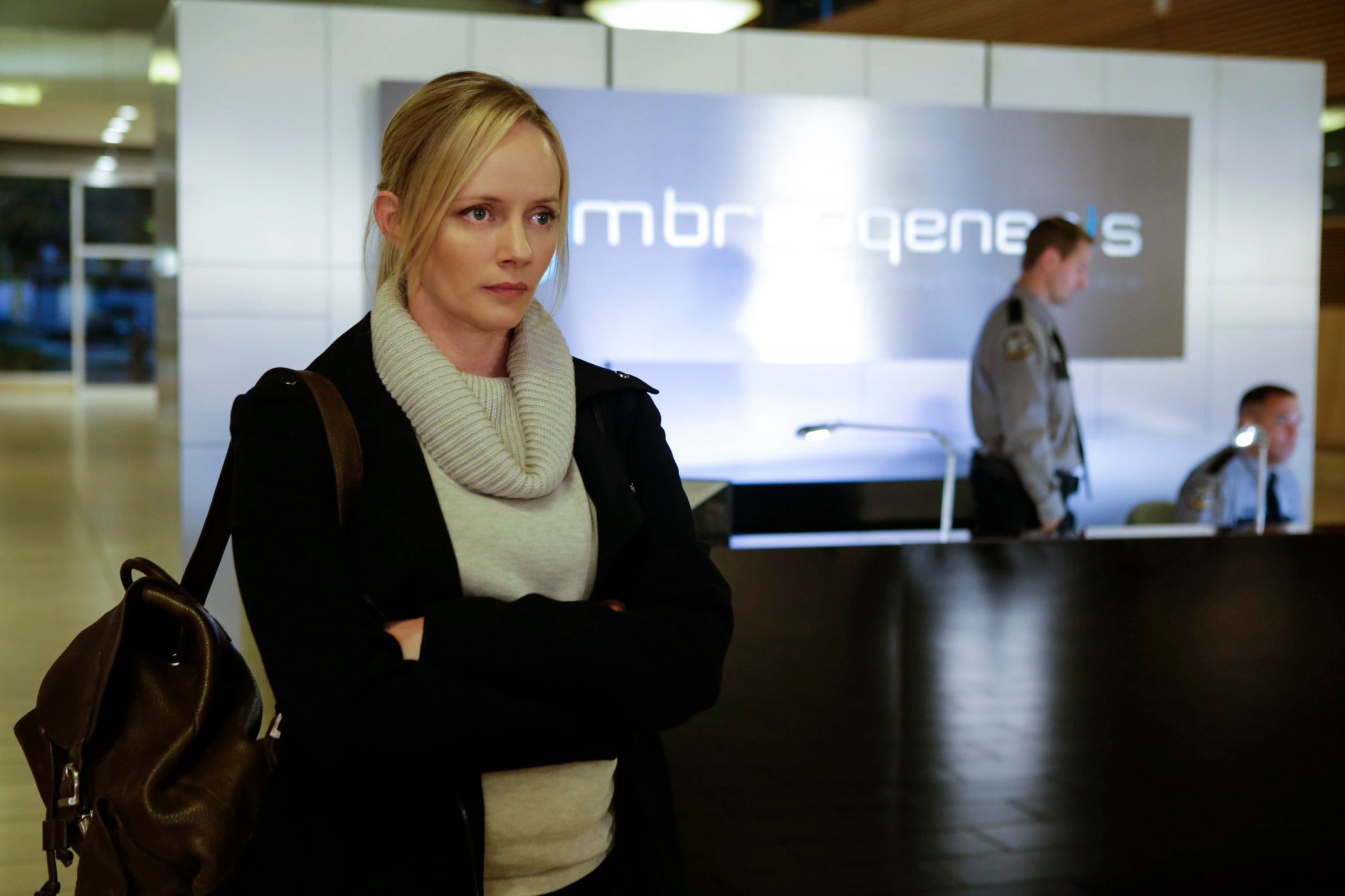
Long before the Hobby Lobby decision, current TV has had reproduction on the brain–not just sex, but fertility, baby-making and their repercussions.
Orphan Black deals with the results of cloning gone awry; NBC remade O.B. horror story Rosemary’s Baby; CBS’s new sci-fi drama Extant is about both an astronaut’s mysterious conception of a baby in space and the android son she and her husband raise after having fertility issues. And Showtime’s Masters of Sex, just beginning a very strong second season, is not just about fireworks in bed but the medicine of fertility, obstetrics and contraception and how reproductive health–and who makes the decisions about it–affects every other part of women’s lives.
Now Lifetime’s The Lottery, premiering Sunday, makes baby-mania the stuff of dystopian sci-fi. Unfortunately, this baby was full of possibility in its conception, but it’s not hitting its developmental milestones.
It’s the mid-2020s, six years after the last human baby was born, amid a sudden, unexplained drop in fertility, and the world is learning What to Expect When No One Is Expecting. As the species faces extinction, women are subjected to mandatory fertility testing, a female “Uncle Sam” in a bikini implores men to donate sperm and a U.S. Department of Humanity prosecutes “fertility crimes,” including scams that promise babies to desperate would-be parents.
Amid the crisis, researcher Alison Lennon (Marley Shelton), has a breakthrough, successfully creating 100 embryos. The government thanks her, commandeers her lab, and announces that it will choose the hundred lucky new moms by, yes, lottery. But the administration appears to be up to something shady, as first evidenced by the fact that a top adviser is played by Martin Donovan. (No offense to the actor, but when’s the last time you’ve seen him in a role like this and thought, “Yep, I bet I can completely trust this character!”) In this newborn-starved world, the hand that controls the cradles rules the world, and Lennon makes it her quest to find out what ends her work is being put to.
Reproduction is, well, fertile ground for dystopian fiction. Margaret Atwood’s The Handmaid’s Tale imagined a totalitarian state that held women by the uterus. And Children of Men–whose Timothy J. Sexton writes and produces Lottery–took place in the hopeless aftermath of a similar baby drought.
But whatever potential The Lottery has to look at the connection between fertility and power, or the timely issues of women’s reproductive autonomy–or a simple dramatic fight over the future of the species–is wasted with flat characters and flimsy political intrigue that plays like a duller version of Scandal. (At one point, the President’s advisers discuss the danger of a “recall election,” with no mention of how we quickly managed to rewrite the Constitution to provide for one, or why a fertility crisis would cause it.) It doesn’t help that the show introduces Lennon as a woman on the prowl for a baby daddy, or that its scenes in the lab are written like Drunk Biology. “Behold, the first viable human embryo in six years,” someone actually says. Behold!
Meanwhile, the pilot devotes long, slow stretches to the single dad (Michael Graziadei) of one of that planet’s last remaining six-year-olds, trying to keep his son out of the clutches of a prying government and of his neighborhood’s circling, baby-mad would-be moms. Presumably this story and Lennon’s will eventually intersect. And eventually, maybe, the series will develop some ideas beyond, “People really want to have babies!” But I’m not sure I’ll stick around to see its story come to term.
More Must-Reads from TIME
- Why Biden Dropped Out
- Ukraine’s Plan to Survive Trump
- The Rise of a New Kind of Parenting Guru
- The Chaos and Commotion of the RNC in Photos
- Why We All Have a Stake in Twisters’ Success
- 8 Eating Habits That Actually Improve Your Sleep
- Welcome to the Noah Lyles Olympics
- Get Our Paris Olympics Newsletter in Your Inbox
Contact us at letters@time.com